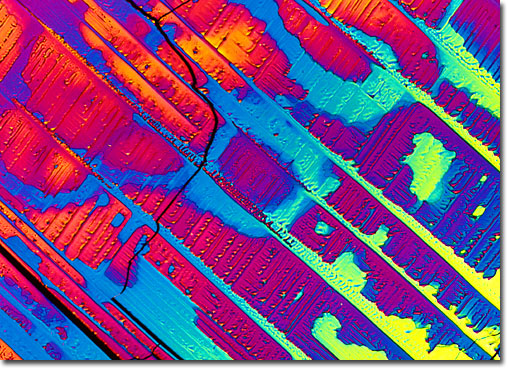Cyanocobalamin (Vitamin B-12)

View a second image of vitamin B-12.
|
Cyanocobalamin, a synthetic derivative of vitamin B-12, is considered the most potent vitamin and is one of the last true vitamins that has been classified. Vitamin B-12 was discovered through studies of pernicious anemia, a condition that begins with a megaloblastic anemia and leads to an irreversible degeneration of the central nervous system. Scientists found that this condition could be reversed by feeding afflicted patients large amounts of raw liver. The active material in the liver was later found to be vitamin B-12, but it is present only in very small concentrations, so many years passed before enough was isolated for serious investigations. Cyanocobalamin is a very unusual biochemical that contains a tetrapyrrole ring system, called a corrin ring, that is chemically very similar to the porphyrin ring system of the heme compounds. Contained within the corrin ring, at the coordination point, is a cobalt ion that is associated with a cyanide ion and a dimethylbenzimidazole nucleotide. Vitamin B-12 functions to provide a methyl group that is used in the synthesis of a number of products during biochemical reactions. Clinically, cyanocobalamin works to promote normal growth and development, helps with certain types of nerve damage, and treats pernicious anemia. This vitamin is not available from plant sources (vegetarians beware!), but animal sources include beef, liver, blue cheese, eggs, fish, milk, and milk products. Symptoms associated with a deficiency of vitamin B-12 are primarily those of pernicious anemia. |
© 1995-2025 by Michael W. Davidson and The Florida State University. All Rights Reserved. No images, graphics, software, scripts, or applets may be reproduced or used in any manner without permission from the copyright holders. Use of this website means you agree to all of the Legal Terms and Conditions set forth by the owners.
This website is maintained by our
|